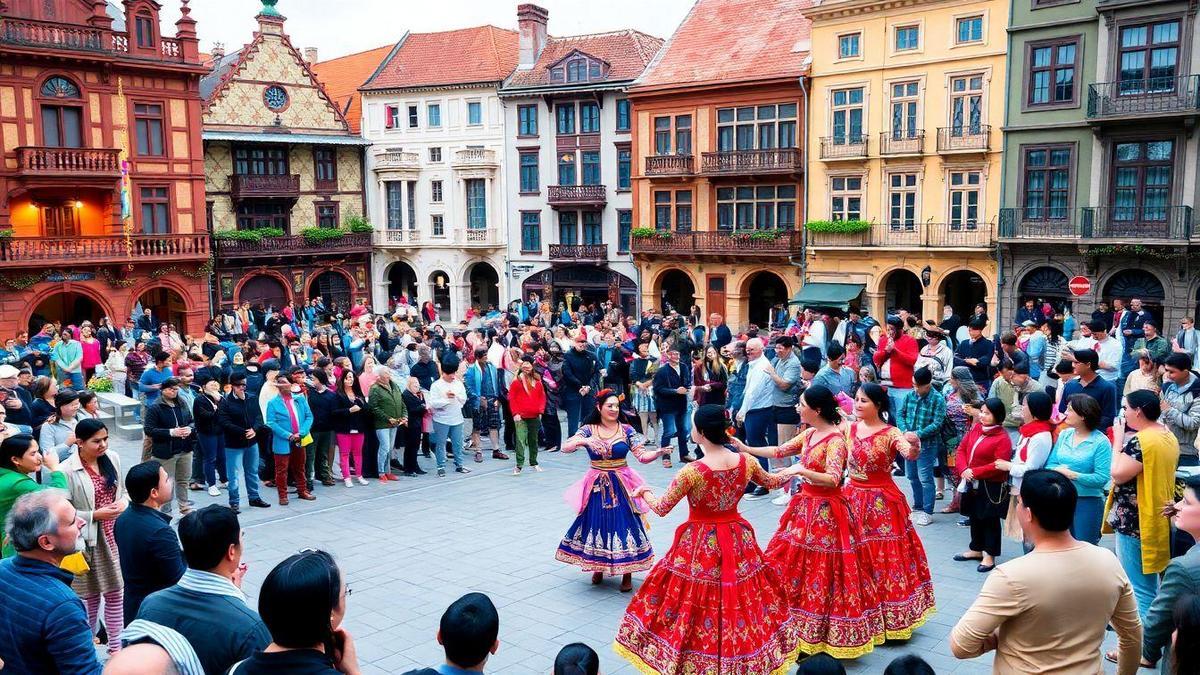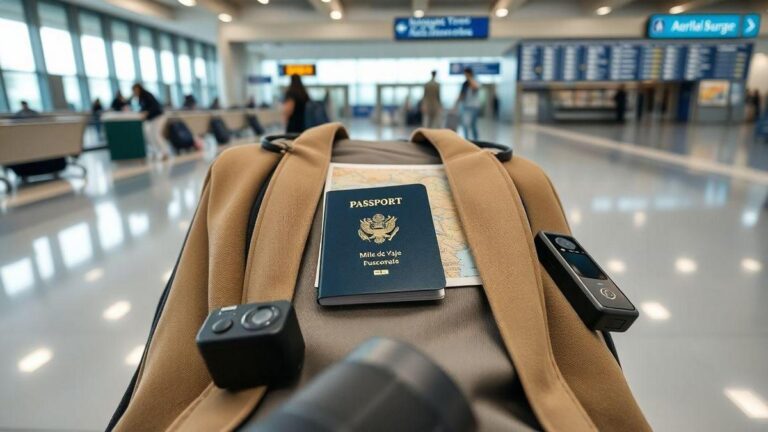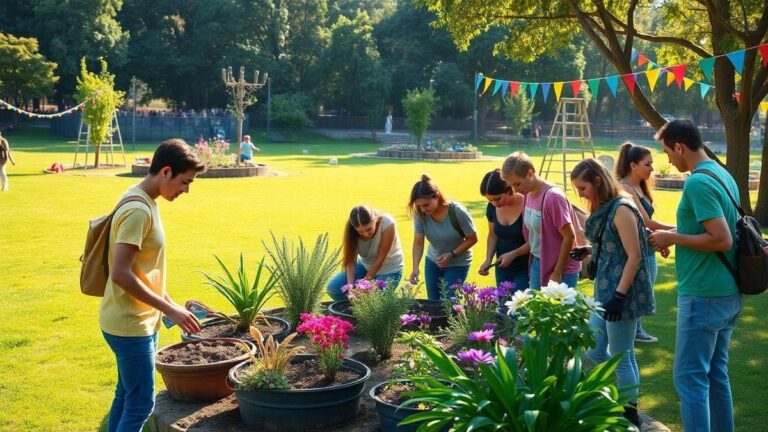Cultural performances better experienced with local language knowledge in historic cities
Cultural performances better experienced with local language knowledge in historic cities can truly elevate your adventures. Imagine being part of a colorful festival, where the stories breathe life into the art around you. It’s not just about watching; it’s about feeling and connecting. Knowing the local language opens doors to rich traditions, captivating narratives, and genuine conversations with locals. So, let’s dive into how you can immerse yourself in culture with the power of language!
Key Insights
- Knowing the local language makes performances more enjoyable.
- You understand the stories behind the shows.
- You connect better with local people.
- It helps you follow along with the music and dance.
- You feel more involved in the culture.
The Importance of Local Language Knowledge in Cultural Performances
Enhancing Your Experience with Local Narratives
When you dive into cultural performances, knowing the local language can be a game changer. Imagine sitting in a lively theater, surrounded by the sounds of music and laughter, but you can’t quite catch the jokes or stories. It’s like watching a movie without subtitles! By understanding the local language, you unlock a treasure chest of narratives that make the performance come alive.
For instance, during a traditional dance show, the stories told through movements and songs often reflect the community’s history. If you grasp the language, you can connect those dots, making the experience far more enriching. You will laugh harder, feel deeper emotions, and appreciate the art even more.
Understanding Traditional Arts Through Language
Language is the key to understanding traditional arts. Each phrase, word, or expression carries meaning that adds layers to the performance. A song sung in its native tongue often holds cultural references and idioms that simply can’t be translated.
Here’s a quick table showing how local language knowledge enhances understanding:
| Aspect | With Local Language | Without Local Language |
|---|---|---|
| Cultural References | Clear and relatable | Often lost or misunderstood |
| Emotional Depth | Profound connection | Surface-level experience |
| Artistic Nuances | Rich appreciation of style and technique | Limited understanding of artistry |
Being able to interpret these nuances can change how you see and feel about the performance. It’s like adding color to a black-and-white picture!
How Language Immersion Brings Cultural Heritage to Life
Language immersion is a fantastic way to experience cultural heritage. When you are surrounded by the local language, you start to pick up phrases and expressions that help you connect with the community. It’s like stepping into a living museum where every word you learn adds a new layer to your understanding.
Imagine attending a festival where locals share stories and legends. If you can engage in conversations, you’ll hear firsthand accounts that are rich with history. You become part of the narrative, and the performances feel more personal.
In short, having local language knowledge isn’t just about words; it’s about building bridges to the heart of culture.
Discovering Regional Festivals in Historic Cities
Connecting with the Community Through Local Language
When you visit historic cities, regional festivals are a fantastic way to connect with the community. These events are filled with lively music, delicious food, and colorful traditions. Knowing a bit of the local language can make your experience even better. Speaking the local language helps you chat with the locals, understand their stories, and feel like you truly belong. Imagine sharing a laugh with a vendor over a local dish or joining in a dance with new friends. It’s all about building connections and making memories.
The Role of Language in Celebrating Cultural Performances
Language plays a big role in cultural performances during festivals. Whether it’s a traditional dance, a theatrical play, or music that tells a story, understanding the language can deepen your appreciation. You’ll catch the nuances in the lyrics or the meaning behind the movements. This connection can transform a simple show into an unforgettable experience. For example, at a local festival in Spain, knowing a few phrases in Spanish allowed me to enjoy a flamenco performance fully. I could feel the passion in the dancers’ words and movements, and it made the night truly special.
Why Festivals are More Enjoyable with Language Skills
Here’s a little table to show how language skills can enhance your festival experience:
| Benefit | Description |
|---|---|
| Deeper Understanding | Grasp the meaning behind performances and traditions. |
| Stronger Connections | Build friendships with locals through conversation. |
| Enhanced Enjoyment | Fully immerse yourself in the atmosphere of the event. |
When you know the local language, festivals become more than just events; they turn into celebrations of life, culture, and community. You’ll find yourself laughing, dancing, and enjoying every moment.
The Benefits of Immersive Experiences in Historic Cities
Learning About Local Stories and Traditions
When you visit a historic city, every corner whispers stories. These tales are not just about buildings; they reflect the heart and soul of the community. You’ll find yourself diving into local traditions, from festivals to culinary delights. Imagine strolling through a bustling market, where vendors share the history behind their crafts. You’ll discover how these stories shape the identity of the place and its people.
Why is this important? Understanding local stories helps you connect with the culture. You won’t just be a tourist; you’ll feel like part of the community. Each story you learn adds a layer to your experience, making it richer and more meaningful.
Engaging with Performers and Locals in Their Language
Have you ever watched a street performer and wished you could understand what they were saying? Engaging with locals in their language opens doors to deeper connections. When you can chat with performers or locals, you’re not just an observer; you’re part of the show.
Here’s how this works:
| Benefit | Description |
|---|---|
| Deeper Understanding | You grasp the nuances of their performances and stories. |
| Stronger Connections | Speaking their language builds trust and friendship. |
| Unique Experiences | You might get invited to local events or gatherings. |
Imagine laughing with a street musician as they share a funny story about their craft. Or joining in a local dance, feeling the rhythm in your bones. These moments are what travel is all about!
Making Lasting Memories Through Language and Culture
When you learn a bit of the local language, you’re not just learning words. You’re creating lasting memories. Picture this: you’re at a local festival, surrounded by joyful faces. You greet the locals with a simple hello or a thank you in their language. Suddenly, you’re not just a visitor; you’re a friend.
These small interactions can leave a big impact. They remind you that travel is about connecting with others. You’ll carry these memories with you long after your trip ends.
Frequently Asked Questions
Why is it important to know the local language for cultural performances?
Knowing the local language helps you understand better. You catch the jokes, stories, and emotions. It makes the experience richer!
How does language impact my experience in historic cities?
In historic cities, language adds depth. You’ll get context and history behind performances. It connects you with locals and their traditions.
Can I enjoy cultural performances without knowing the local language?
Yes, you can! But knowing a bit of the local language makes it more enjoyable. You’ll feel more connected to the performance.
What are some tips for learning local phrases before a trip?
Start by learning greetings and common phrases. Use language apps or watch videos. Practice with locals when you arrive. Every little bit helps!
Are there certain performances where language is more essential?
Absolutely! Plays, operas, and folk shows rely heavily on language. Understanding the dialogue or lyrics enhances your experience. Cultural performances are better experienced with local language knowledge in historic cities.

Hey, I’m Paula — traveler, language nerd, and the curious mind behind znewz.com. I’ve always believed that real connections happen through words, gestures, and shared experiences — not algorithms. That’s why I created this blog: to share travel stories from around the world and explore how language helps us connect in ways that AI still can’t. Whether I’m getting lost in a tiny town or striking up a chat in a language I barely know, I’m here to show that sometimes the best moments happen when tech takes a back seat.





